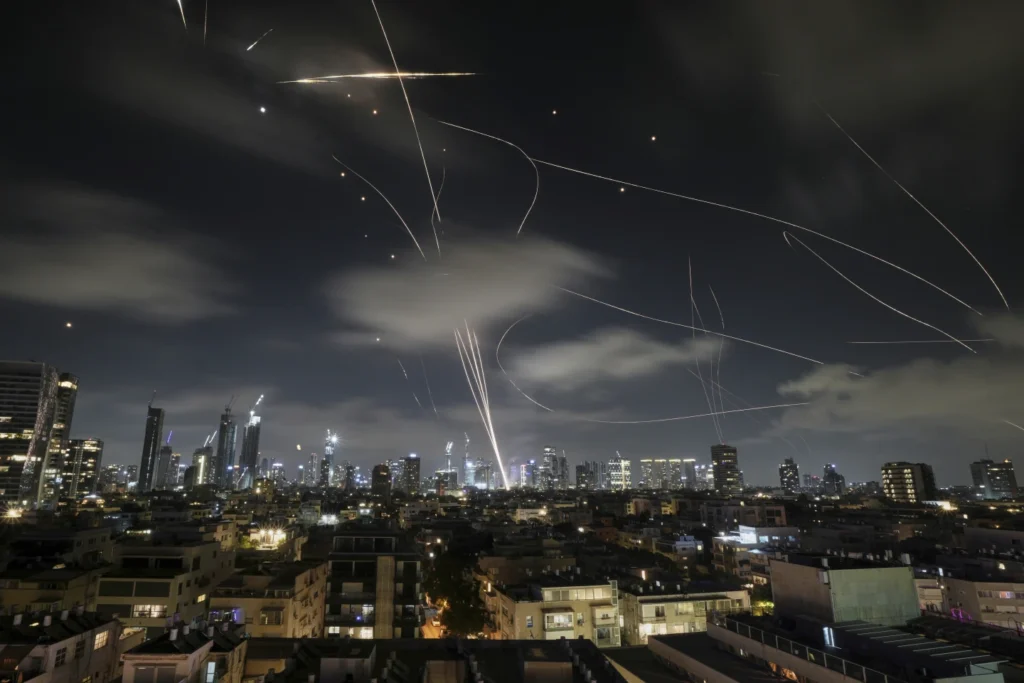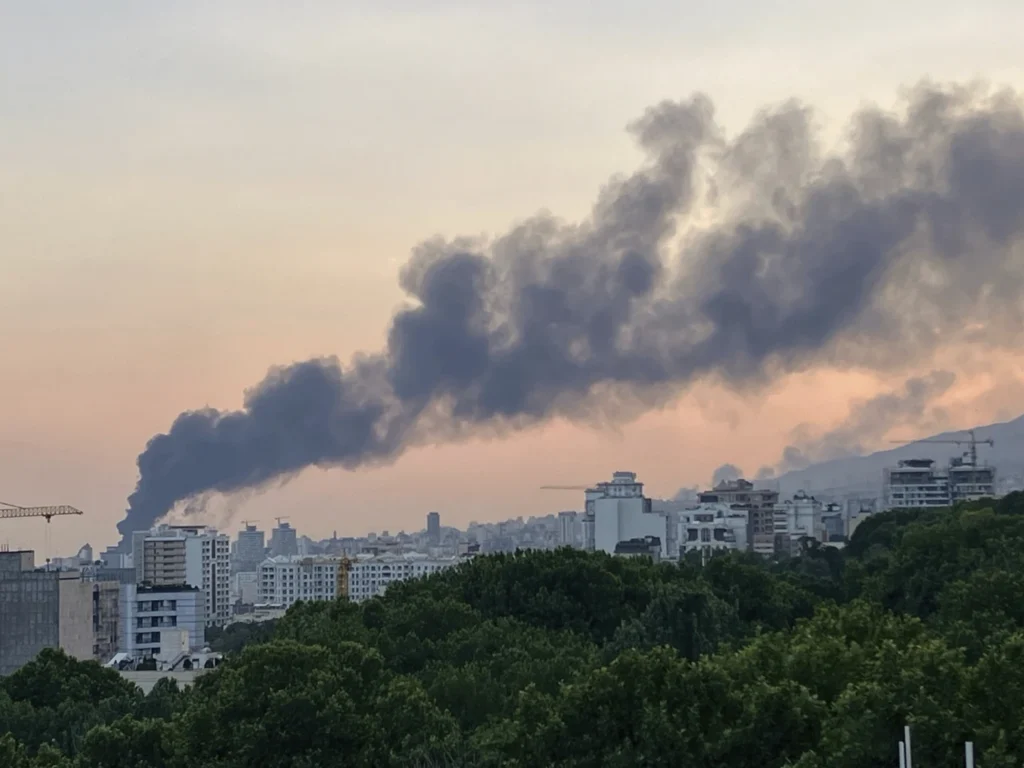TEHRAN, Iran (BN24) — Israeli warplanes unleashed a wave of airstrikes across Iran’s capital overnight into Wednesday, targeting facilities tied to Tehran’s nuclear ambitions and military infrastructure, as Iran’s once-fierce retaliatory missile barrages showed signs of fading.

According to Israel’s military, the overnight strikes hit a centrifuge manufacturing site and another facility producing missile components. The military also said it intercepted 10 Iranian missiles overnight, underscoring the diminishing scope of Iran’s response, which has tapered off significantly after Israel’s direct strikes on launch sites.
Iran, meanwhile, warned the United States against intervening, calling any such move a path toward “all-out war in the region.” Speaking to Al Jazeera English, Iranian Foreign Ministry spokesperson Esmail Baghaei declared that American involvement would escalate the conflict to catastrophic levels.
The confrontation, now in its sixth day, has spiraled from a surprise Israeli bombing campaign launched Friday against Iranian military and nuclear targets. The assault has killed at least 585 people in Iran, including 239 civilians, according to Human Rights Activists, a U.S.-based Iranian group known for documenting internal Iranian affairs during past crises.
Across Tehran, the humanitarian toll is mounting. Shops and stalls in the city’s famed Grand Bazaar are shuttered. Long gas lines snake through neighborhoods. Roads are jammed with residents fleeing the capital as more explosions rattle the city in the early morning hours, including a major blast at approximately 5 a.m. near the Hakimiyeh district—an area housing a Revolutionary Guard academy.

Despite widespread damage, Iranian authorities have offered no official acknowledgment of the latest strikes, continuing a trend of silence as Israel’s assault intensifies. The country’s most recent casualty update, issued Monday, placed the death toll at 224 and the wounded at 1,277—figures now believed to be significantly outdated.
Since the conflict ignited, Iran has launched more than 400 missiles and hundreds of drones at Israel in retaliatory strikes, some of which struck civilian apartment buildings in central Israel, killing at least 24 and injuring hundreds. However, only a few missiles were fired on Wednesday—marking a stark drop-off Iran has not explained. Analysts attribute the lull to Israel’s successful targeting of many missile launchers across Iran.
The conflict has drawn close attention in Washington. President Donald Trump, who initially distanced the U.S. from the Israeli offensive, has since signaled a more aggressive stance. On social media, Trump called for Iran’s “UNCONDITIONAL SURRENDER” and warned Supreme Leader Ayatollah Ali Khamenei that “we know where you’re hiding,” though he added that the U.S. was “not planning to kill him—at least not for now.”
Trump’s comments followed a Tuesday phone call with Israeli Prime Minister Benjamin Netanyahu, according to a White House official. While the U.S. has yet to announce direct military involvement, it has deployed additional warplanes to the region.
Iranian military officials responded to Trump’s rhetoric with warnings of further action. “The operations carried out so far have been solely for the purpose of warning and deterrence,” said Gen. Abdul Rahim Mousavi, commander in chief of Iran’s army. “The punishment operation will be carried out soon.”
Israel has defended its escalation by citing Iran’s continued nuclear enrichment and what it says is a failure of diplomacy. The country claims the campaign is aimed at halting Iran’s ability to build a nuclear weapon. Though talks between the U.S. and Iran were still ongoing, Israel launched its offensive after the 60-day window for progress set by Trump passed without significant results.
Iran insists its nuclear program is peaceful, but remains the only non-nuclear weapons state enriching uranium to 60% purity—just shy of weapons-grade. U.S. intelligence agencies maintain there is no evidence that Iran is actively pursuing nuclear weapons.
On social media, Israeli Defense Minister Israel Katz wrote, “A storm is passing over Tehran. This is how dictatorships collapse.” Iran’s supreme leader struck a more defiant tone, vowing “no mercy” toward Israel in a post on his official X account.
For the first time since the war began, flights returned to Israel Wednesday morning. Two planes from Cyprus landed at Tel Aviv’s Ben Gurion International Airport, according to airport spokesperson Lisa Dvir.
Israel had shut its airspace to civilian flights due to the missile threat, stranding thousands of Israelis abroad and disrupting regional air travel. The partial reopening marks a shift, though the risk of incoming fire remains.
AP



